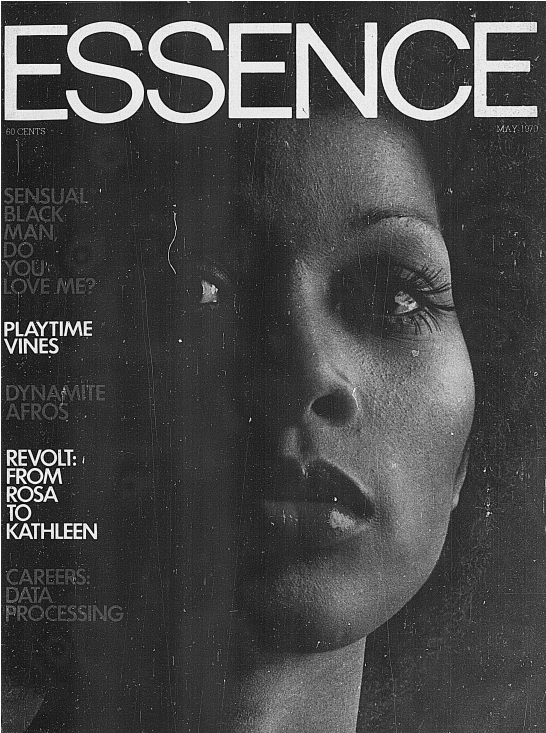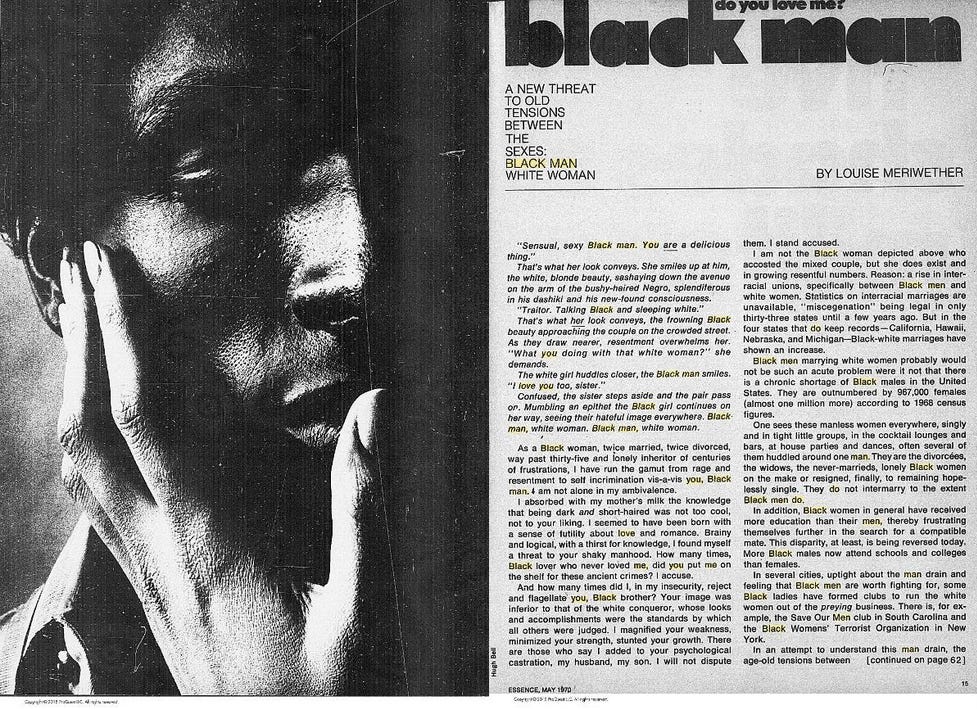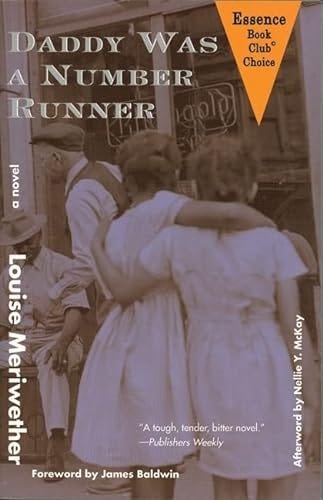Rookie Season: Debuts
Extra seasoning for your everyday food for thought
Genre: Fictional Autobiography, Coming-of-Age, Classics
“I turned my attention to Black history for the kindergarten set, recognizing that the deliberate omission of Blacks from American history has been damaging to the children of both races. It reinforces in one a feeling of inferiority and in the other a myth of superiority.”
— Louise Meriwether
Back Cover (Feminist Press):
“This bittersweet and sharply observed masterpiece recounts a year in the life of twelve-year-old Francie Coffin. It is the summer of 1934, and nowhere are the effects of the Great Depression more apparent than in Harlem. But Harlem is also home to a community’s anger, humor, and vitality, the paradoxical cradle of young Francie’s innocence and dreams—just like the daily numbers game played for the small glint of hope that it boldly promises but will never fulfill.”
Daddy Was A Number Runner, the 1970 debut novel by Louise Meriwether, first published by Prentice Hall and containing a praise-worthy foreword penned by James Baldwin, follows the good, the bad, and the ugly of a young adolescent Black girl, Francie Coffin, and her family’s struggles to survive in Harlem, New York, during the middle of the Great Depression.
Considered a modern day classic, scholar and literary critic, Dr. Nellie Y. McKay1 (most known for co-editing the 1st edition of the Norton Anthology of African American Literature in 1996 alongside Dr. Henry Louis Gates Jr.) wrote of the novel:
“As readers, critics, and outsiders, we are unable to pass judgment on the people or the circumstances in this novel by separating them into categories clearly defined as good and bad or right and wrong; not even when we consider such widely divided issues as the ambiguous illegality of playing the numbers2 . . . But we leave this book with a better understanding of the challenges presented each day to each of its main characters, and we have a greater appreciation for the victories of those who survive.”3
“Although the book did very well, in terms of sales, it might have offended people in power,” said poet Ishmael Reed. “It risks offending people by taking up such issues as police brutality, the unemployment situation, the desperation caused by the Depression and the different ways that Blacks and whites are treated by society.”4
Born (May 8, 1923) in Haverstraw, New York, to a painter/bricklayer and a domestic housekeeper, Louise Meriwether grew up in Harlem in bedlam, the only daughter of five children.
She completed a B.A. degree in English from New York University and a M.A. in Journalism from UCLA, and was awarded various grants throughout her lifetime, including: the Rabinowitz Foundation, the Mellon Foundation, the New York State Council on the Arts, and the National Endowment for the Arts.
“They was acting the fool as usual, their knickers hanging loose, their caps on backward, whistling at the girls and falling out at their own jokes. As I watched them they didn’t seem so bad all of a sudden, just full of fun, and I didn’t want them to fall off the roof or cut each other or be hauled off to jail but just to stay there, safe and sound forever.”
– Louise Meriwether, Daddy Was A Number Runner
Did You Know?
Did you know that Louise Meriwether (born May 8, 1923) lived to be a centenarian?

Tell Me More . . .
Throughout a storied career, Meriwether was not only a force of nature as a writer but a dedicated peacenik and activist, named a recipient of the Clara Lemlich Award for Social Activism in 2011.5
Approached to be editor-in-chief for a new kind of magazine for Black women called Essence, Meriwether declined, saying she preferred to write for the magazine instead.
In fact, Meriwether’s article, “Black Man Do You Love Me?” appeared as the cover story for Essence magazine’s first issue in May 1970.


Some Food For Thought:
“Because she [Meriwether] has so truthfully conveyed what the world looks like from a Black girl’s point of view, she has told everyone who can read or feel what it means to be a Black man or woman in this country. She has achieved an assessment, in a deliberately minor key, of a major tragedy. It is a considerable achievement, and I hope she simply keeps on keeping on.”
— James Baldwin, in a foreword written for Daddy Was A Number Runner, 1970
BTW - Louise Meriwether went home (to be with the Lord), October 2023, at the age of 100.6
Given her life-long commitment to learning, writing, teaching, and social activism, her cultural legacy will live on forever—a useful reminder that, “Life ain’t so short, if you spend your time wisely.”
In Memoriam, Louise Meriwether.
🔊 : Everybody Gather Round & Listen To Curtis Mayfield’s Timeless Classic - “Keep On Keeping On”
Rookie Season: Debuts
A STEM Grew Petals Newsletter
Next issue is James Baldwin - Go Tell It On The Mountain:
Want Daily Quotes?
Follow on Instagram (at Captioned Black Art)
Made in Silicon Valley (with love) by author Jafari Joseph.
Copyright (C) 2024 My STEM Grew Petals Publishing. All rights reserved.
STEM Grew Petals is a reader-supported publication. To receive new posts and support my work, consider becoming a free or paid subscriber.




